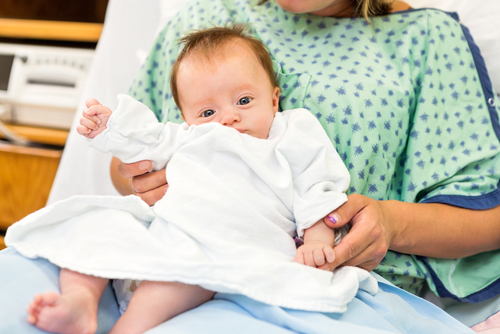 A new study reinforced previous evidence of neonatal HBV vaccination as a protective strategy against liver cancer and other chronic liver diseases in young adulthood. The study entitled “Efficacy of Neonatal HBV Vaccination on Liver Cancer and Other Liver Diseases over 30-Year Follow-up of the Qidong Hepatitis B Intervention Study: A Cluster Randomized Controlled Trial” was published in the journal PLOS Medicine.
A new study reinforced previous evidence of neonatal HBV vaccination as a protective strategy against liver cancer and other chronic liver diseases in young adulthood. The study entitled “Efficacy of Neonatal HBV Vaccination on Liver Cancer and Other Liver Diseases over 30-Year Follow-up of the Qidong Hepatitis B Intervention Study: A Cluster Randomized Controlled Trial” was published in the journal PLOS Medicine.
Although a vaccine for hepatitis B has been available since 1982, more than two billion people worldwide have been infected with the virus, with over 350 million presenting chronic incidences of the disease. Most patients will recover from the hepatitis B, but 5%-10% of patients will develop a chronic infection, with children most at risk. HBV infection is prevalent in many regions, mainly in sub-Saharan Africa and East Asia, and can be transmitted from mother to newborn. Regrettably, most children infected with HBV during the first years of life will have chronic HBV infection. More than 780,000 people die every year from complications associated with chronic hepatitis B infection, including cirrhosis and liver cancer.
In this study, the research team assessed the ability of newborn HBV vaccination to protect young adults from primary liver cancer and other liver diseases by analyzing the Qidong Hepatitis B intervention Study (QHBIS) during a 30 year period. The QHBIS is a randomized controlled trial of HBV vaccination of newborns performed between 1983 and 1990 in Qidong County, a rural area in China, known then to have an elevated prevalence of primary liver cancer and other liver diseases due to HBV infection.
In this trial they compared outcomes between randomized groups of subjects. One group received the HBV vaccination, while the control group received a placebo. During the 80s, this type of study was ethically approved because HBV vaccination was not available in rural China. In this trial 80,000 newborns were enrolled, and in the control group, participants between the age of 10 and 14 received a catch-up vaccination.
The authors obtained data from a population-based tumor registry to analyze the number of participants that developed primary liver cancer or died from a liver disease during the study period of 30 years, and results on HBsAg seroprevalence in the blood of the participants from surveys performed during 1996–2000 and 2008–2012.
The researchers found that newborn vaccination reduced the cases of liver cancer by 84%, death from liver diseases by 70% and infant fatal hepatitis by 69%. As a whole, the efficacy of catch-up vaccination on HBsAg seroprevalence during early adulthood was lower (21%) when compared to that of the newborn HBV vaccination (72%). Importantly, receiving a booster vaccination between the age of 10 and 14 years decreased HBsAg seroprevalence in individuals born from mothers positive for HBsAg.
This study shows that HBV vaccination of newborns significantly reduced HBsAg seroprevalence in childhood and young adulthood, and the probability of liver cancer and other liver diseases in young adults; and suggests that booster vaccination during adolescence may strengthen the efficiency of newborn vaccination among individuals who were born from mothers positive for HbsAg.

